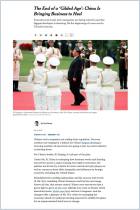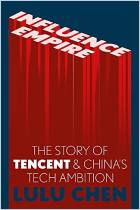Rejoignez getAbstract pour lire le résumé !

Rejoignez getAbstract pour lire le résumé !
Paul Mozur
Forget TikTok. China’s Powerhouse App Is WeChat, and Its Power Is Sweeping.
A vital connection for the Chinese diaspora, the app has also become a global conduit of Chinese state propaganda, surveillance and intimidation. The United States has proposed banning it.
The New York Times, 2020
Aperçu
WeChat may bring people together, but it’s also a menacing tool for the Chinese government.
Recommendation
TikTok may be hip, but only those outside China use it. In China, people use WeChat, an all-in-one digital service for making personal connections and paying bills. For the Chinese Communist Party and its police, WeChat is a powerful tool for surveillance, manipulation and deception. Its use doesn’t stop at China’s borders. For that reason, as Paul Mozur reports in The New York Times, the United States views WeChat as a security risk. WeChat joins TikTok in the confrontation between China and America over digital technologies. Mozur illuminates the conflict Chinese people living abroad face between connecting to folks at home and being swept up in China’s surveillance state.
Summary
About the Author
Two-time Pulitzer Prize finalist Paul Mozur is a technology correspondent for The New York Times focusing on the intersection of technology and geopolitics in Asia.

















Comment on this summary